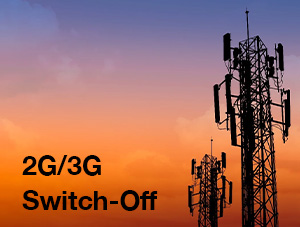Eurostar Global Reflects on the 2G/3G Switch-Off – A New Era in Connectivity 01/01/2024

The journey of mobile data began with the introduction of 1G in 1991, enabling on-the-go phone calls. 2G followed, introducing SMS and photo sharing. In 2001, 3G brought video calling, though at a slower pace. The game-changer was 4G in 2010, offering speeds five times faster than its predecessor. Then came 5G, astonishing with speeds 100 times faster than 4G, ideal for our hyper-connected world.
As we step into 2024, Eurostar Global is witnessing a pivotal shift in the UK’s telecommunications landscape: the gradual switch-off of 2G and 3G networks. This transformation marks a significant milestone in the evolution of mobile data, signifying a leap towards more advanced and efficient 4G and 5G networks.
Major UK networks, including Vodafone, EE, Three and O2, have embarked on this transition, with Vodafone and EE planning to complete their 3G switch-off in early 2024 and Three by the end of 2024. O2 plans to follow suit in 2025. This decision, aligned with global trends, aims to repurpose the underutilised frequencies of 2G and 3G for the more robust 4G and 5G networks, enhancing overall telecom security and service quality.
Most modern smartphones, especially those post-2010, are well equipped for this change. However, owners of older devices may need to upgrade to continue accessing mobile data services. Mobile providers are committed to assisting customers through this transition, offering guidance and support to ensure a smooth switch to the newer networks.
The switch-off does not just affect smartphones; devices like alarms and payment terminals using 3G networks may also need upgrades. It's important for individuals and businesses to review their equipment and prepare for the changes.
As Eurostar Global looks ahead, we embrace this change, recognising the immense potential it holds for improved connectivity and innovative solutions in the telecom sector. The switch-off is a step towards a future where faster, more reliable, and more secure communication is the norm.
